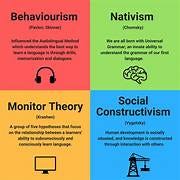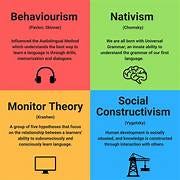I
t’s not too hard to have something to write about. Some helpful prompts can be found at language is a virus dot com. One of my favorites there is a mad libs type, “My First ____” (fill in the blank). That made me write about my earliest birthday memory or the first time I told a lie, etc. But another useful one is “First Thought, Best Thought.” That makes you focus and be unfiltered.
If none of those floats your paddleboat out into the riptide then you can try some excellent and simple advice from Ray Bradbury (who’s that? Well, he’s dead now, but he had a couple of wild-eyed-wild-boy ideas, lemme tell ya): “Write about something you love; or (conversely) write about something you hate.”
Again, it’s easy to focus your writing and be unfiltered when you want to be honest about something you have an emotional attachment to.
Since I am writing in honor of the Summer Solstice which begins at 9:42 p.m. (I tell my students over and over again what p.m. and a.m. mean as abbreviations, most can’t remember—hey, the Pavlovian schema of repetition and memory works—sometimes), I wanted to make a post in time for the Summer Solstice, not that I am believer in Earth Magic or Spiritualism (though I am a Christian and am spiritual). Sun, Moon, and Stars are important to keep track of and celestial bodies can have an influence on our existence. Yes, the bodies can “align”, but do they “cross”?
“Then God said, ‘Let there be lights in the firmament of the heavens to divide the day from the night; and let them be for signs and seasons, and for days and years; and let them be for lights in the firmament of the heavens to give light on the earth’; and it was so.” Genesis 1:14-15.
We are to keep track of the celestial bodies and take note if we want to keep track of time (solar and lunar cycles and the distances Venus creeps across night sky, etc), but we are not to worship the creation. Even Plato related a family secret learned from his grandpa, Salon, who had traveled to Egypt and hung out with the priests at On (Heliopolis): The gods the Egyptians worshipped in ritual and hieroglyph were stars that they had tracked for thousands of years.
I ain’t gonna waste my time worshipping a star or wonder how it might influence my day as its “rising.” (Btw: I’m a Moon Scorpio IFYKYK). I wanna worship the One who made the stars, set them in their orbits, and holds the span of the Universe (One Word) in His hands.
This post falls under the Ray Bradbury influence. It is in response to a post I received in my email titled, “A Culture Cannot Own a Musical Genre.” It struck a chord in me because, well, I used to be in alternative rock bands and chased the dream of getting signed to a label all the way to Hollywood (another story for another time as it comes from a whole other life that I have lived). I have not read the article beyond the title. The title was effective as click bait to get my brain firing.
The obvious response (which goes a long way in agreement) is that there are twelve notes in existence. God made the twelve notes—roughly the C scale. It is exists as a principle everywhere throughout the universe. These twelve notes permeate motion and color throughout the Universe being caused by natural phenomena and invented instrumentation.
Music is a universal principle. 12 notes were created and permeate motion and color throughout the Universe in different pitches caused by natural and invented instrumentation. As Cheap Trick guitarist Rick Nielsen says, “There’s only 12 notes and each bands think that the way they arrange the 12 notes is cooler than the way everyone else does.”
The long way of saying that the point is this: no one can own the notes and the way the notes are put together is a product of time and place and style. Given time, any style can be learned or mimicked, though in slight variations. But to fight over who owns it or who is better is like spitting in the wind or as Robert Zimmerman once sang as a rhetorical question about how many roads a human must walk down before people give him respect.
In the end it means nothing. Not a thing in the grand scheme of things except for vanity and pomposity. Which is the purvey of critics.
Now, let us take this same argument and answer to it with language: words.
How many words did I know when I was born? Big fat goose egg. The same as everyone else and you can google that or go spit in the wind. If someone ever makes you feel stupid because they know a word or have helped invent a new word that you don’t know, just remember: someone taught them the word or they had to learn the word. If they can learn the word, so can you. It’s just a word.
Humans have a capacity for language acquisition. How and when and why that happens is another argument and more spitting in the wind. It happens, dear humans.
If you look at the picture I posted, I prescribe to part Behaviorism and Nativism. Why? It is innate within us. Provided, much like our built-in musical instrument—the vocal chords, by our Creator. Having grown up in church, I did not read much of the Bible other than for Sunday School or to follow along for a sermon, so I was amazed to learn of the “Adamic” approach to poetry where a poet acts like they are naming things for the first time. This principle is based on Genesis 2:19 “Out of the ground the LORD God formed every beast of the field and every bird of the air, and brought them to Adam to see what he would call them. And whatever Adam called each living creature, that was its name.”
However we “acquired” the gift of language we all got the capacity. In our English language, there are, as of now, 26 letters with the newest addition being the “w” which is a Germanic variation on the interchangeable (in Latin) “u” and “v.” No one “owns” the letters (again, light the musical notes). No one owns the “tropes” (the ideas). I believe that the ideas are eternal, and, like Plato, may exist or have and are pre-existing in a Universe of Forms that come into our world through the messy midwifery of sweaty craft and bloody birth and crying frustration.
As the post’s title that I am responding to indicates that no one culture can own a genre, no one person or culture in any time or space own a genre of literature. An idea is an idea and is free to travel through the eons and be rediscovered and reapplied.
As there are/were genius of math and science like Archimedes and Isaac Newton (I think he’s the dude who said he and his peers were standing on the shoulders of giants, meaning those genius who had come before), and as there are/were geniuses of music like Amadeus Mozart, there have been a few geniuses of literature: I will just two that I familiar with: William Shakespeare and Edgar Allan Poe. They both had just twenty-six letters to work with; they both dabbled in more than one medium (drama and poetry versus short fiction and non-fiction and poetry); they both liked to dip their toes into more than one genre of story-telling (though, Shakespeare wrote many comedies, Edgar Allan Poe wrote at least one—the zany “X-ing a Paragraph”).
But, oh, what wondrous works and worlds they created!
One invented hundreds of new words and phrases while never worrying about inventing a single new plot (Billy-boy); while the other invented new genres or trail-blazed the path for twists on what is possible with certain genres (Eddie). One added to the dictionary (Shagspear) and one was a walking dictionary (Poe).
In that spirit and on the longest day of the year where each of us will cast the longest shadow, be adventurous with your craft and enjoy the discovery of what is possible.





@Gabriel O. Maestas , thank you for the like on the longest day of the year!
@Janine Eaby, thank you for the like!!